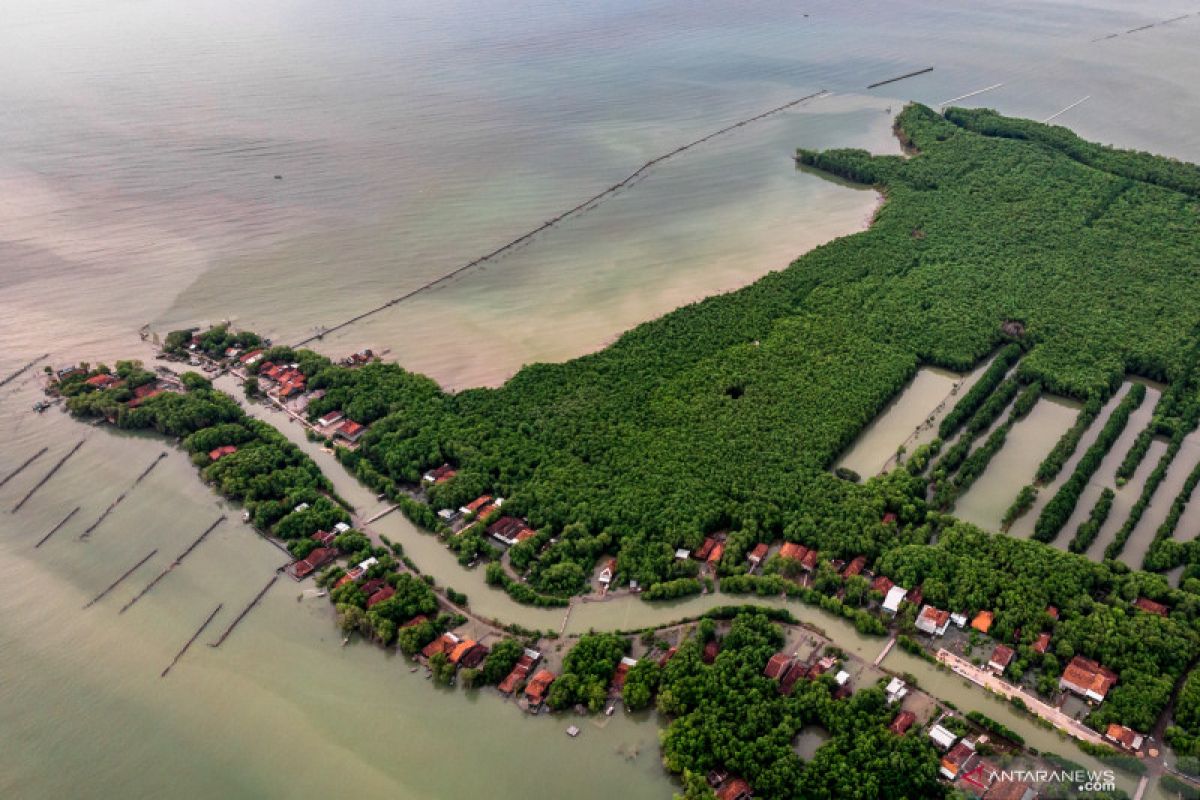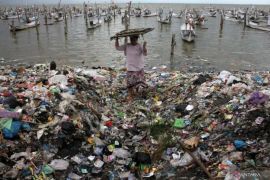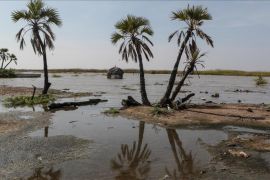Experts project that this threat will potentially inflict a huge financial and emotional toll on residents in these areas owing to loss or damage to property, among others repercussions.
Experts have forecast sea levels to rise 25 to 50 centimeters in 2050, and by 2100, the seawater will inundate most coastal cities in Indonesia.
"Coastal communities will be the most susceptible group due to coastal flooding and land subsidence and changes in the marine environment. These include loss and damage to property due to flooding and their land being permanently submerged, thereby resulting in rising costs for rehabilitation and migration," Deputy for Social Science and Humanity of the Indonesian Institute of Sciences (LIPI) Tri Nuke Pujiastuti explained in Jakarta on Thursday.
In the meantime, Sri Sunarti Purwaningsih, head of LIPI's Community and Cultural Research Center, remarked that the coastal communities of Jakarta, Semarang, and Demak can potentially incur loss and damage to property owing to flooding and permanent submergence of land.
"Global sea-level rise can lead to increased costs for forced rehabilitation and migration, so there is an urgent need to overcome the effects of sea-level rise and land subsidence," she cautioned.
Pujiastuti pointed to scientific advice playing a significant role in providing solutions to overcome the problem of sea-level rise and land subsidence and its impacts.
"Social and natural sciences are necessary to provide scientific advice to overcome these specific problems," she stated.
Purwaningsih drew attention to the fact that efforts to adapt to climate change have environmental, economic, and social implications.
"Adaptation to climate change is currently more supportive of a resilience- and vulnerability-based approach. There are pros and cons in the development of infrastructure, such as the giant sea wall in Jakarta or the integration of sea dikes and toll roads in Semarang and Demak," she emphasized.
As an archipelagic nation, Indonesia faces several social, economic, and environmental impacts owing to the effects of global climate change. Short-, medium-, and long-term strategies as well as efforts are deemed necessary as a precautionary and mitigatory measure.
LIPI along with the International Network for Government Science Advice-Asia (INGSA-Asia) deliberated on the mapping of stakeholder involvement and the mechanism of scientific advice through a holistic and multidisciplinary approach in taking climate change adaptation actions to manage climate risk to an acceptable level.
Both institutes also discussed the pressing need to put in place special laws on climate change adaptation and intensify coordination and management of integrated coastal zones in the Indonesian legal system.
Related news: As sea levels rise, economic damage piles up even faster: Study
EDITED BY INE
Translator: Virna P. Setyorini/Yashinta Di
Editor: Suharto
Copyright © ANTARA 2019












